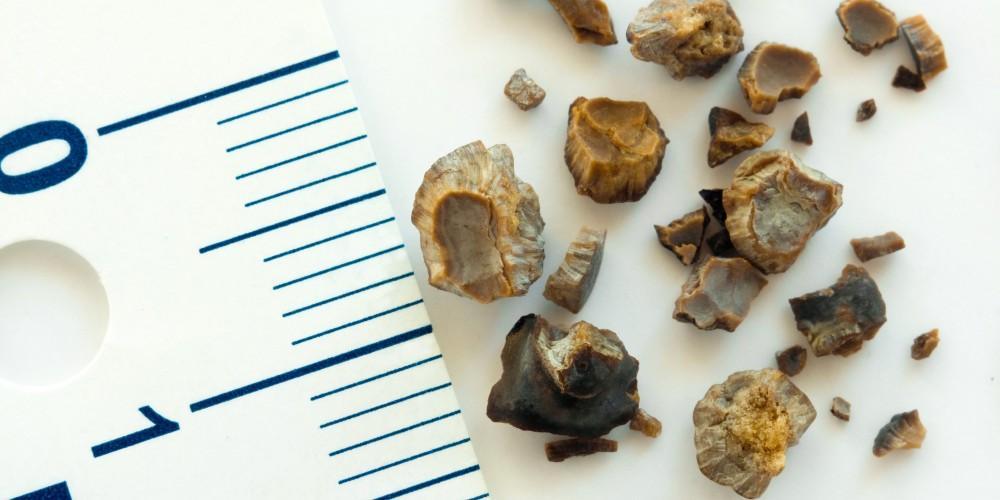
5 Myths About Kidney Stones

If you’ve ever gotten a kidney stone you know that it’s not like a nagging cough, it is quite painful and in extreme cases can even require surgery to correct. The rumors that people spread about what a kidney stone experience is like can be quite frightening but the fact is most of these rumors are just that – rumors. It’s important to know, however, if the what you are experiencing are actual kidney stone symptoms, or something else, for example, a urinary tract infection or sometimes just plain old indigestion. When you start buying into these myths that people spread about kidney stones, it can can cause you undue stress or worse, lead you to a treatment that will advance your problem not help it. This is why we want to debunk the top myths about kidney stones so you can better know kidney stone symptoms when you spot them. Keep in mind the main symptoms will be different for everyone but include pain when you urinate, nausea, frequent urination, fevers and cold chills, and pains that come in different intensities and fluctuate. Just because you have one of these symptoms or lack thereof, does not indicate you have kidney stones. For your health’s sake don’t believe the hype of these kidney stone and treatment myths:
Cranberry Juice Flushes Kidney Stones
MYTH BUSTED: Cranberry juice is great if you have a urinary tract infection or to prevent one. It solidifies your urine which flushes an infection out and prevents them. If you have a kidney stone, however, it makes the problem exponentially worse. Cranberry contains high amounts of oxalate, which causes kidney stones. So the next time you get kidney stone symptoms, pass on the cranberry if you want to pass those stones.
Kidney Stones Feel Like a Stomachache
MYTH BUSTED: Kidney stones are more along the lines of a contraction, and some people it is more severe than labor, so go ask your mom if labor is just like a stomachache and send us her reaction. Trust us, the pain can range from a stabbing sensation to pain along the lines of menstrual cramps. It’s definitely not a “tummy ache.”
Pain Originates In Your Lower Back Near Your Kidneys
MYTH BUSTED: When the pain hits, it will most often center a little below your abdomen after the stone journeys into the ureter. The ureter is funnel shaped but gets much narrower the closer you get to the bladder. A kidney stone is like getting a rock through a straw, that’s why the pain is so intense. You have an organ that has so many nerve endings and when it is irritated the pain is excruciating. The stones begin to block the urine flow, causing urine to fill up in the kidney and descend. This then causes nausea and pain beyond your imagination.
Milk causes Kidney Stones Because Of The Calcium
MYTH BUSTED: Milk – Really does a body good. Calcium is your friend, so drink on. The fact is one-way kidney stones are actually caused is a LACK of calcium. You should have a glass of milk at least once a day or yogurt. Try to also consume more magnesium as this binds oxalate which will help in kidney stone prevention. And no kids, this isn’t an excuse to have chocolate milk for dinner, but thanks for playing.
Soda Causes Kidney Stones
MYTH BUSTED: While we are tempted to let you believe this one as Soda is a nutrient empty, sugar-laden drink, we must inform you this is NOT the case. The fact is phosphoric acid is the culprit that is an ingredient in SOME sodas, typically colas, and pepper sodas such as Coke or Dr. Pepper and Pepsi. The other issue with Soda is that it is a diuretic because of the caffeine. This makes the salt content in your urine rise, which promotes kidney stones. So have a soda, but also follow it with an equal amount of water and you will decrease that concentrate. Alternatively, you could avoid soda altogether and replace it with healthier alternatives.
As Always, Consult Your Physician
If you feel you may be suffering from kidney stone symptoms, your first course of action should always be to consult your physician. Dr. Cornell is a well-respected, board certified urologist serving the greater Houston area. Contact our office today to get a referral if you are suffering from urinary or kidney pain.
You Might Also Enjoy...


4 Things You Should Always Talk to Your Men’s Health Specialist About

Am I a Good Candidate for Testosterone Replacement Therapy?

How an Erectile Dysfunction (ED) Diagnosis Might Benefit Your Heart

5 Encouraging Facts About an Enlarged Prostate


